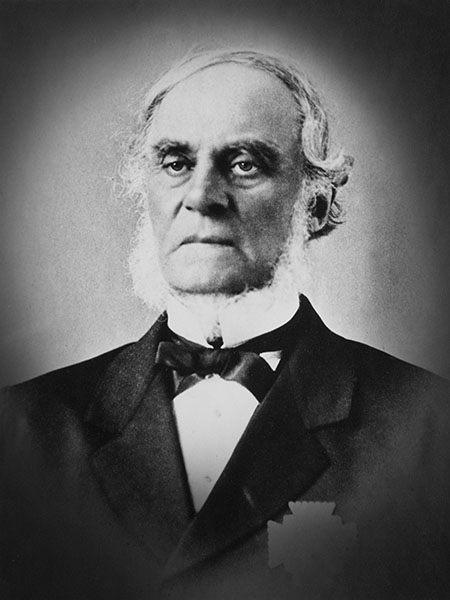 James Douglas was a loyal servant to the colonial project, earning himself the moniker of “The Father of British Columbia” for his commitment to establishing power over the lands we now know as British Columbia (Smith 8). Born in Guyana to a Scottish father and a “free coloured” (mixed black and white) mother from Barbados, he came to Canada as a teenager to seek opportunities in the growing fur trade (Adams 1). He rose in the ranks at Hudson’s Bay Company until he became Chief Factor (Smith 30). HBC sent him to Fort Victoria in 1849 to secure this territory for trade and settlement (Smith 74), and soon after the British government appointed him Governor of Vancouver Island and later Governor of British Columbia (Smith 78).
James Douglas was a loyal servant to the colonial project, earning himself the moniker of “The Father of British Columbia” for his commitment to establishing power over the lands we now know as British Columbia (Smith 8). Born in Guyana to a Scottish father and a “free coloured” (mixed black and white) mother from Barbados, he came to Canada as a teenager to seek opportunities in the growing fur trade (Adams 1). He rose in the ranks at Hudson’s Bay Company until he became Chief Factor (Smith 30). HBC sent him to Fort Victoria in 1849 to secure this territory for trade and settlement (Smith 74), and soon after the British government appointed him Governor of Vancouver Island and later Governor of British Columbia (Smith 78).
Douglas’s name is also connected to some of the most important documents of British Columbia’s colonial history: the Douglas Treaties. As Chief Factor of Hudson’s Bay Company and the “primary agent for treaty-making," Douglas negotiated fourteen land purchases from Indigenous Peoples in and around present-day Victoria (Government of Canada, para. 9).
Douglas is credited with purchasing W̱SÁNEĆ territory for Hudson’s Bay Company in February 1852 (Jackman 116). W̱SÁNEĆ accounts of the event reveal that the Indigenous leaders present at this meeting were not clearly informed on the meaning of the document they “signed”: “Our people didn’t know what the X’s were for... One man spoke up after they discussed it, and said, ‘I think James Douglas wants to keep the peace...I think these are the sign of the cross’... It wasn’t much later they found out actually they were signing their land away by putting those crosses out there. They didn’t know what it said on that paper” (Elliott 71-2). Legal historian Hamar Foster independently reached the same conclusion about the misleading circumstances under which the W̱SÁNEĆ leaders signed the so-called treaties (Vallance 137). Other Nations have similar stories about being misled or lied to in the treaty negotiations with James Douglas (Vallance).
Multiple stories of Douglas’s violence against Indigenous people exist (Elliott 71, Jackman 45, Smith 19), though some are disputed as rumour or exaggeration. However, George Simpson, a colonial governor and Douglas’s contemporary wrote in his private journal that Douglas could be “furiously violent when roused” (qtd. in Smith 20), suggesting a hotheadedness that supports stories of violence. Inarguably, James Douglas played a key role in securing British Columbia as a part of colonial country we now know as Canada.
Douglas Street, Victoria, B.C.
Douglas Obelisk at the Legislature Buildings, Victoria, B.C.
Douglas College, Vancouver, BC
James Bay, Victoria, BC
Mount Douglas/PKOLS, Victoria, BC
James Island, Haro Strait, BC
James Douglas statue in Demerara-Mahaica, Guyana
